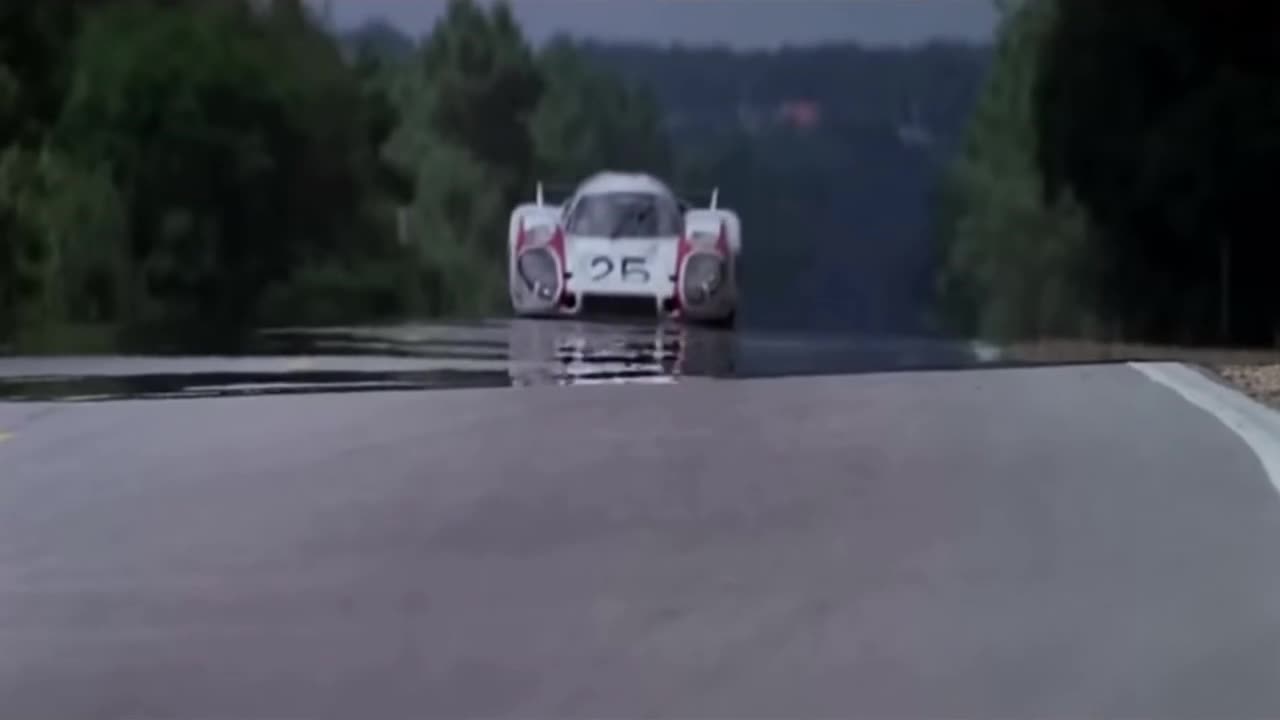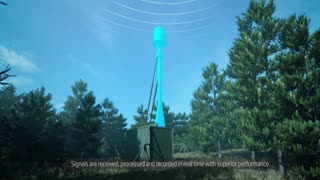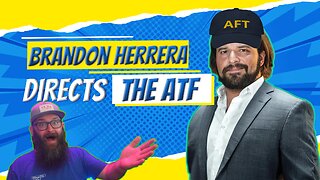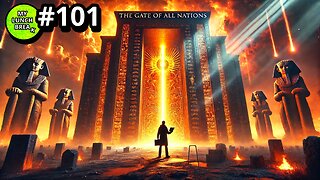Premium Only Content

Cars Gary Numan
Cars Album: The Pleasure Principle (1979)
by Gary Numan
Numan has stated that he has Asperger syndrome, which is a mild form of autism, but until he was diagnosed, he had a lot of trouble relating to other people.
Numan told Mojo magazine March 2008 about the original inspiration for this song: "A couple of blokes started peering in the window and for whatever reason took a dislike to me, so I had to take evasive action. I swerved up the pavement, scattering pedestrians everywhere. After that, I began to see the car as the tank of modern society."
This was Numan's only hit in the US, but he has had many others in England, where he has a large cult following. Numan specializes in electronic music, and was an influence on artists like Marilyn Manson and Nine Inch Nails.
So does the one hit wonder tag bother him? In a 2010 Songfacts interview with Gary Numan, he said: "In a way it does. But you have to be realistic; better to have had one than none. On the other hand, it gives you that drive to keep on going, I suppose. I don't know, I mean, if even that's true. Because I do it because I love it. I think if having hit singles and that level of success is your reason for making music in the first place, then I would find that situation very frustrating if I only had one hit. But the truth is, I do it almost as a hobby. I've just been lucky that I've been able to earn a living from it for such a long time. Because if I didn't earn a living from it, I would still make exactly the same records, and write exactly the same songs.
If an album goes out and it doesn't sell in large numbers, or in America it doesn't sell at all (laughs), I'm not devastated by that. I'm not sitting back thinking it's all a waste of time, because I just enjoyed making it in the first place. And luckily for me there's been other countries - the UK obviously - where things have gone differently and much better. And it's enabled me to keep on doing it, to keep on earning a living from it. So there is a mix of frustration, because it's an amazing country to be successful in. On the other hand, I don't feel as if my life has been diminished by not having an ongoing success there."
While Numan is known for his electronic music innovations, he prefers real instruments. He told us: "I didn't go the technology route wholeheartedly, the way Kraftwerk had done. I considered it to be a layer. I added to what we already had, and I wanted to merge that. There's plenty of things about guitar players, and bass players, and songs I really love that I didn't particularly want to get rid of. The only time I did get rid of guitars was on Pleasure Principle, and that was in fact a reaction to the press. I got a huge amount of hostility from the British press, particularly, when I first became successful. And Pleasure Principle was the first album I made after that success happened. I became successful in the early part of '79 and Pleasure Principle came out in the end of '79, in the UK, anyway. And there was a lot of talk about electronic music being cold and weak and all that sort of stuff. So I made Pleasure Principle to try to prove a point, that you could make a contemporary album that didn't have guitar in it, but still had enough power and would stand up well. That's the only reason that album didn't have guitar in it. But apart from that one album they've all had guitars - that was the blueprint."
This song has found new life and given Numan a great deal of exposure to another generation through covers by Fear Factory (with Numan singing on the track and appearing in the video), Nine Inch Nails, Dave Clarke, Kool G Rap & DJ Polo, The Judybats, and Tia. Says Numan: "It's been a most amazing thing, really, to keep hearing about the people that are doing cover versions. I was trolling around the other day for something totally unrelated and I came across a Youtube of Courtney Love's band, Hole, doing 'Cars.' I just thought, 'Yeah.' And there's a lot of that. It's very cool, and I don't take it for granted at all. I'm so totally blown away with a big grin on my face every time I hear that someone's done something like that. So it's not as if I'm kind of arrogantly expecting it. Quite the opposite."
Even though the message of this song is that cars lead to a mechanical society devoid of personal interaction, it didn't stop automakers from using it in commercials. Both Nissan and Oldsmobile have used it in ads.
A more clever approach came from Diehard, who created a commercial where Numan played the song on 24 car horns powered by just one of their batteries. Numan has no problem with his song being used in commercials, telling Songfacts, "I'm up for that, actually. I think any use of it at all. It would be great if it happened again."
In the UK, this was used in an American Express commercial in the '80s, as well as an ad for Carling beer that ran in 1996. The beer commercial gave the song new life in the UK.
TV series that have used this song in some form include The Simpsons, Family Guy, South Park and Two and a Half Men.
Numan made a video for this with special effects that look ridiculous now, but were cutting edge in 1979. When MTV went on the air in 1981, it was one of about 200 videos they had, so they played it over and over. This made the song a hit in the US.
Numan explained to Rolling Stone how he came up with this song's synthesizer hook: "I have only written two songs on bass guitar and the first one was 'Cars.' I had just been to London to buy a bass and when I got home the first thing I played was that intro riff. I thought, 'Hey, that's not bad!' In 10 minutes, I had the whole song. The quickest one I ever wrote. And the most famous one I'd ever written. More people should learn from that."
Numan took his surname from a plumber in the telephone directory called Neumann Kitchen Appliances. He told NME he tried to find a two-syllable name, "because my real name Webb didn't seem very cool."
Le Mans is a 1971 film depicting a fictional 24 Hours of Le Mans auto race starring Steve McQueen and directed by Lee H. Katzin. The film began as a John Sturges project, before he was replaced during filming. It features actual footage captured during the 1970 race held the previous June.
Steve McQueen as Michael Delaney, Le Mans driver for the Gulf Porsche team, in the #20 Porsche 917
Siegfried Rauch as Erich Stahler, Delaney's rival who drives for the Ferrari team's #8 Ferrari 512
-
 8:42
8:42
Psychological operations
1 day agoTwo Pairs Of Hands Cleaning My Gun Mark Knopfler
20 -

Delnorin Games
12 hours ago🔴 Live - Star Citizen
55.2K12 -
 1:39:44
1:39:44
HELMET FIRE
13 hours agoDEADROP IS BACK!
143K8 -
 10:03
10:03
Tundra Tactical
15 hours ago $15.10 earnedBrandon Herrera Vies Bid for ATF Director!
92K16 -
 22:01
22:01
DeVory Darkins
1 day ago $36.29 earnedHakeem Jeffries SHUTS DOWN The View as Matt Gaetz Speaks out
80.8K129 -
 2:02:54
2:02:54
Mally_Mouse
14 hours agoLet's Play!! - Spicy Saturday
60.3K2 -
 1:33:06
1:33:06
Slightly Offensive
15 hours ago $30.74 earnedAre You Ready for What's Coming Next? | Just Chatting Chill Stream
77.2K42 -
 32:10
32:10
MYLUNCHBREAK CHANNEL PAGE
1 day agoThe Gate of All Nations
148K63 -
 13:07
13:07
Sideserf Cake Studio
19 hours ago $3.86 earnedIS THIS THE MOST REALISTIC SUSHI CAKE EVER MADE?
64.6K4 -
 21:08
21:08
Clownfish TV
1 day agoElon Musk Tells WotC to BURN IN HELL for Erasing Gary Gygax from DnD!
52.1K16